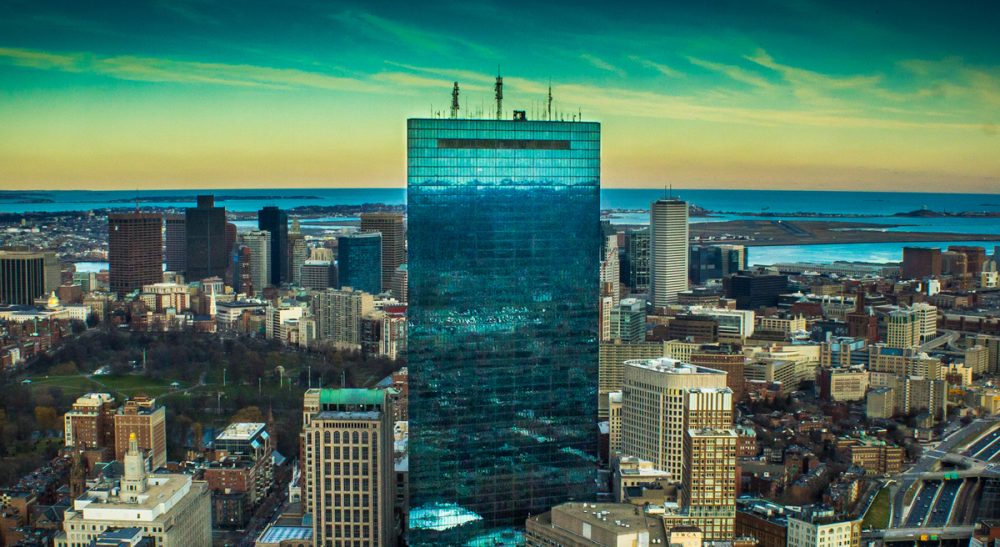Advertisement
Boston Isn't An Olympic City. Let's Keep It That Way.

As you may have heard, Boston is on the U.S. Olympic Committee’s "short list" of possible candidates to host the 2024 Summer Olympics, alongside Washington, D.C., San Francisco and Los Angeles.
This is not a good thing. After failed Olympic bids by New York (2012) and Chicago (2016), whichever city the USOC puts forward as its candidate to host 2024 will be favored to win the full IOC vote three years from now. The Summer Games have never been held in the Northeast. Most Europeans love our city, so Boston could actually win. Speaking as someone who has covered 15 Olympics, I would rather host a case of shingles than the Summer Games.
Not that Boston couldn't pull it off. If Atlanta could host an Olympics — albeit one so poorly received that IOC President Juan Antonio Samaranch, at the Closing Ceremonies, refused to declare them "the best Olympics ever" for the only time in his long tenure — Boston certainly could. We are a great sports town with a "can do" spirit vividly captured by the support for this year’s Boston Marathon. Boston also has a good start on Olympic-caliber facilities in Gillette Stadium, Fenway Park and the TD Garden.
Speaking as someone who has covered 15 Olympics, I would rather host a case of shingles than the Summer Games.
What we don’t have is scale. The most successful Summer Olympics are held in cities so large they are not overwhelmed by the Games: London (pop. 7.8 million), Beijing (21 million), Athens (5.8 million), Sydney (4.4 million), Seoul (10.4 million). Atlanta is the only Summer Olympic city of the last 10 to have a population of less than a million people (453,000), and the result was a city overwhelmed by media, IOC officials, athletes and visitors. A dearth of city restaurants, hotels and taxis led to price gouging and profiteering. Visitors were housed far and wide, shuttled in and out by highway. Bus drivers, many of whom had to be imported from around the country, got lost. Business as usual stopped.
Boston, with a population of less than 650,000, would face similar problems. You think rush hour traffic is bad now? How would it be with the addition of hundreds of buses and dedicated Olympic lanes? The T? Our outdated subway system cannot handle a dispersing Red Sox crowd. What would it be like after Opening Ceremonies? And while, yes, the Olympics might be the ideal excuse to modernize the Green Line, the implementation of such a project would snarl Commonwealth Avenue traffic for the next six or seven years.
And while it’s fun to contemplate a Beach Volleyball venue in the Public Garden, one becomes less giddy at the thought of a 75,000-seat stadium being constructed beside the Southeast Expressway, already a parking lot during commuting hours. To say nothing of the $15-billion price tag that is the going rate to host a modern Olympics (both London and Rio de Janeiro were in that range; over-the-top Beijing and Sochi were $44 billion and $51 billion, respectively.) And the security web that would be necessary to protect Olympic venues strewn from Cambridge to Foxboro? Can you spell n-i-g-h-t-m-a-r-e?
Could we do it? Sure. With corporate support, the cooperation of our local universities, effective leadership: no doubt. But why would we want to? Boston doesn't need a new massive downtown stadium. It doesn't need international exposure. And if it needs an updated subway system, there are less impactful ways to accomplish it than to bring in the Olympics. And while the construction industry would certainly benefit financially were Boston to land the 2024 Games, the overall impact on the local economy would probably be negligible, or worse. A 2012 Merrill Lynch study found that 10 of the last 11 Olympics brought lingering financial duress to the host city — in the case of Athens, it was crippling. And Rio, 2016? Brace yourself.
You think rush hour traffic is bad now? How would it be with the addition of hundreds of buses and dedicated Olympic lanes?
So how to stop it? Turns out, citizens of prospective host cities have a significant voice in the selection process. The IOC website states, "Applicant cities are judged on 11 technical criteria." The first of the 11? "Government support, legal issues and public opinion."
Public opinion torpedoed Salzburg, Austria’s bid to host the 2014 Winter Games. In a referendum held in April 2005, voters cast 60 percent of their ballots against the idea. The same thing is winnowing out candidates to host the 2022 Winter Olympics, the site of which will be voted on next year. Both Munich and St. Moritz-Davos decided not to bid after voters in Germany and Switzerland voted "no" in referendums. Another potential site, Krakow, Poland, withdrew from the bidding process in May when 70 percent of its voters turned thumbs down. Polls show that 60 percent of the residents of Oslo, one of five remaining bid cities, are against hosting the 2022 Games. "We have an image problem," Norwegian IOC member Gerhard Heiberg told the Associated Press. "People in Norway say we love the Games, but we hate the IOC."
People in Boston should say the same thing. Call the mayor. Email the Globe. Write your congressman and the USOC. Tell them that Boston loves the Olympics, but hates the idea — and the costs — of hosting one. Give the bid to Los Angeles, which has already hosted two Summer Games and has the scale and experience to absorb this outsized circus. Include us out.
Related:
